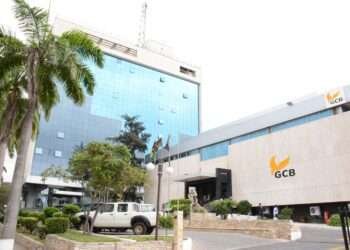The recent decline in consumer inflation has sent ripples through Ghana’s Treasury market, prompting a reshaping of rates and a shift in investor sentiments.
In just a month, headline inflation plummeted from 35.2% in October to 26.4% in November 2023, triggering a noteworthy impact on T-bill yields and overall market dynamics.
This sudden downturn led to a retreat in T-bill yields, with the 91-day and 182-day yields decreasing by 53bps and 83bps respectively, settling at 29.05% and 31.14%. The 364-day yield also experienced a significant drop, settling at 32.49% (-97bps) in response to the unexpected decline in inflation rates.
Despite the decline, investor interest in T-bills remained robust, with bids reaching GHC4.73 billion against an auction target of GHC3.98 billion. The government accepted GHC4.72 billion, surpassing the target by approximately 19%, and maturities due by around 27%.
Economists and analysts foresee sustained disinflation continuing to exert downward pressure on T-bill yields. The decline in headline inflation is attributed to favorable base effects and higher Consumer Price Index (CPI) levels compared to the corresponding period last year.
This downturn aligns with market forecasts, providing a welcomed relief amid persistently high inflation rates. The government’s year-end inflation target of 31.3%, as outlined in the 2024 Budget, adds further significance to this positive shift.
The disinflation process, which began earlier in the year, has seen inflation scale down from 43.1% in July 2023 to 40.1% in August, marking a cumulative decline of 27.7% since its peak in December 2022 at 54.1%. Despite occasional fluctuations, the trend has been predominantly downward.
While the government’s reliance on money market funding might initially support an increase in T-bill yields, experts anticipate that sustained disinflation will likely limit significant upticks in yields.
The Decline In T-bill Yields
The decline in T-bill yields, stemming from the unexpected drop in consumer inflation, is not only reshaping the Treasury market but also impacting investment strategies. Investors, seeking yield in a low-interest-rate environment, may need to reassess their portfolios and diversify into alternative assets.
While T-bills have traditionally been a favored short-term investment, the diminishing yields may prompt a shift towards equities or longer-term bonds. This change in investment dynamics emphasizes the need for a flexible and adaptive approach as market conditions evolve in response to the ongoing disinflationary trend.
Looking ahead, the Treasury plans to raise GHC2.59 billion through Treasury Bill offers, hinting at market sentiments suggesting that nominal yields may have peaked, hovering between 29.97% and 33.70% across the T-bill curve.
The positive shift In the market is expected to benefit the treasury, especially considering its plan to domestically finance around GH¢61.4 billion, constituting 99.3% of the total deficit financing for 2024.
In the secondary bond market for government papers, trading activity remained upbeat with a 47.42% increase in total weekly volume traded, reaching GHC2.07 billion. Notably, trading was concentrated on the 2031-2034 papers, representing 61.40% of the total market turnover.
Despite mixed performance in bond yields, investor confidence seems to be gradually rebounding on Ghana’s disinflation process. The substantial decline in consumer inflation has not only impacted T-bill yields but has also influenced market sentiments.
The ongoing disinflationary trend is anticipated to continue shaping Ghana’s financial landscape, possibly paving the way for more stable and favorable market conditions in the near future.
READ ALSO: NAPO Urges Public To Ignore “Propaganda”





















